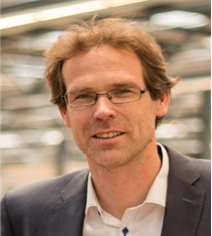Talk with the professors - Victor Scholten
Victor Scholten
Dr.ing. V.E. (Victor) Scholten is an Assistant Professor in Technology-Based Entrepreneurship at Delft University of Technology. He is currently researching academic spin-out companies, technology transfer to SMEs, strategic business venturing, entrepreneurial teams, and entrepreneurial networking strategies. Besides published scientific and professional journals, he also contributed as an author of several books, one of them is Managing Technology Entrepreneurship and Innovation (2015).
According to you, why should engineers choose to pursue MOT?
In my view, the future engineer has a solid understanding of the value of technology for society and in particular how users are using technology to get a job done. Having insight in user jobs, the challenges users have when performing a task in their work or life will ensure the innovations make sense, solve problems and as a result the technology is more valuable for users. In addition, besides knowing the value of technology for users, it is vital that engineers understand how technology (products and services) find their way to the users. That is, who is paying for the product or service, what does it take to market it, to produce it, to test and run pilots to make the technology fit to user needs. It includes the assessment of market attractiveness and feasibility for a company to run a profitable business.
What should students expect from the MOT program?
Deeping the knowledge of what the value of technology is, to whom and how it can be made to ensure buyers have a compelling reason to purchase it against a price it provides positive cash flow for the company.
What do you think makes MOT different from other programs in management?
Taking part in MOT allows the future engineer to gain the knowledge of how technology offers value to users and can bring about new business models that offer a competitive edge to companies. The future engineer who took part in the MOT program is more valuable for companies and have greater opportunities at the labour market.
What is your research area and how does this relate to the MOT program?
My expertise is in technology-based entrepreneurship. How to identify opportunities, use entrepreneurial networks and stakeholders to find market opportunities and exploit them.
Can you tell us in short about the emerging technology-based innovation & entrepreneurship specialization and its careers prospects?
After participating in the emerging technology-based innovation & entrepreneurship specialization, students are more adept to assess business opportunities based on new technology developments: how technology can be used to build new business models that are pivotal in changing and transforming industries. The student can build or join a start-up or be involved in new business development and new venture development within existing firms or be a consultant in helping organising for new venture and business development programs.
How has your experience been at the faculty of TPM?
My experience within TPM is great. Working with bright students who are keen to search for new opportunities based on cutting edge technology keeps you highly motivated and engaged.
